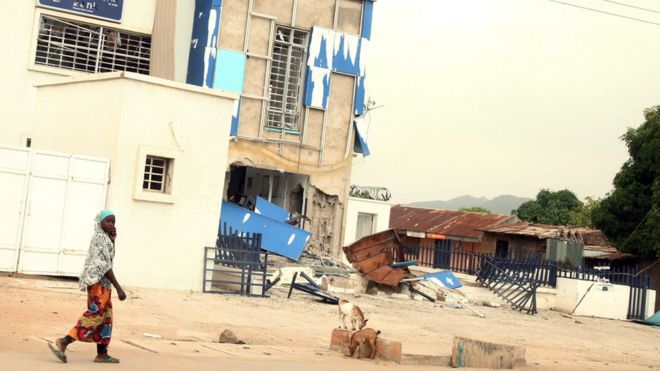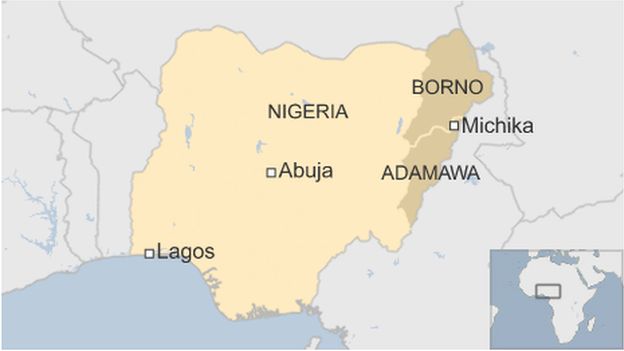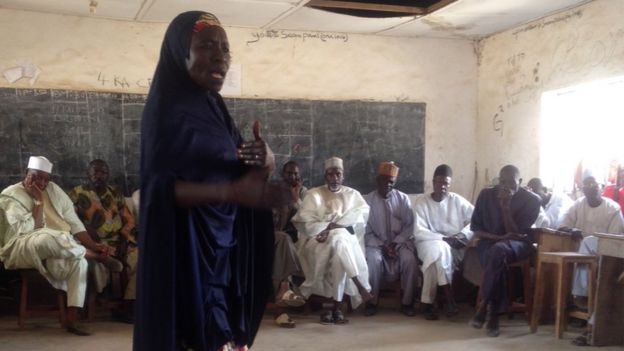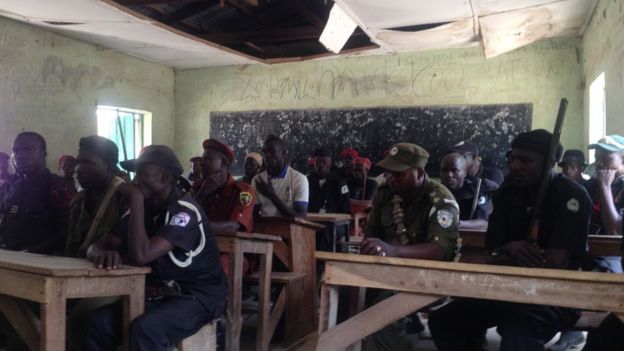
- 18 April 2016
- Africa
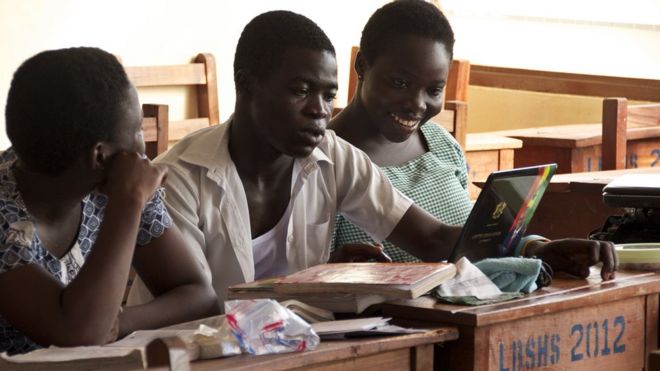 AFP
AFP
In our series of letters from African journalists, Ghanaian writer Elizabeth Ohene looks at the novel ways that schoolchildren cheat during exams.
While the whole world has been focusing on the Panama Papers leak, we have been engulfed in our own local leaks here in Ghana. Not of the secret offshore accounts kind but of the examinations kind.
We are in the midst of what seems to be a regular embarrassing crisis. This year, just like the year before, there are reports that the questions for the West African Senior School Certificate exams have leaked.
The morning the exams were due to start, a national newspaper carried a front page story announcing that the questions for three subjects, Oral English, Integrated Science and Social Studies, had leaked and some students had received the questions on social media between the hours of midnight and 04:00.
I have been wondering how helpful leaked questions for Oral English can be. Would I have fared any better if my A-level Oral French questions had been leaked to me at 01:00 on the morning of the exams? I suspect not.
But times change, I have to concede.
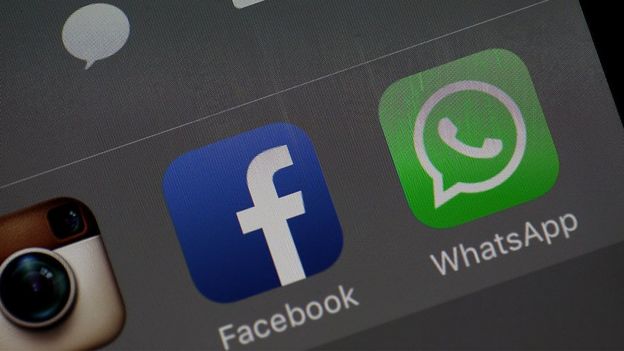 AFP[
AFP[
There have been photos of the thighs of students with words written on them, which were said to be answers to the questions they were facing in the exams.
As can be expected there is the inevitable outcry from everybody, all the way to President John Mahama, who has expressed his indignation that the West African Examination Council was not able to protect the integrity of its exams.
'Worthless certificates'
The head of its national office has offered the most reassuring explanation: What had happened should not be called a leak of the questions; it was a simply a case of the children getting "foreknowledge" of the questions.
Apparently it only qualifies as a leak when students get access to questions a number of days before the exams.
When it happens hours before, as in this case, then the students had "foreknowledge".
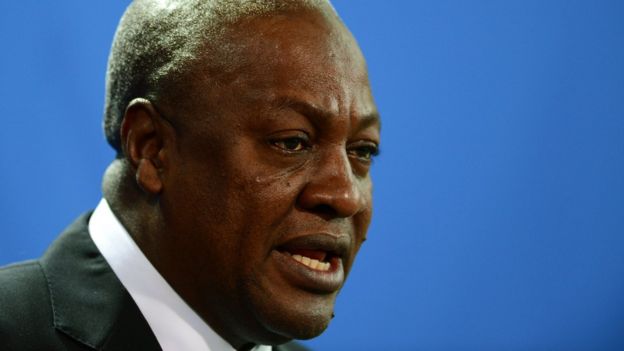 AFP
AFP
I was not quite sure whether to laugh or to cry and as I have followed the ensuing discussions and arguments, I notice that most people were only worried that their certificates would be deemed worthless and degraded by institutions in the parts of the world Ghanaians aspire to go to - the UK, US, Australia, etc.
It seems it is perfectly OK for us to have worthless and degraded certificates for our use here in Ghana.
Parents pay
Then I discovered that this was not a problem plaguing us here in Ghana alone.
A little search revealed that other countries on the continent, like Kenya, Zambia and Zimbabwe, and, of course, our West African neighbours regularly have similar problems.
India has also had the most interesting stories about exam leakages and/or foreknowledge of questions.
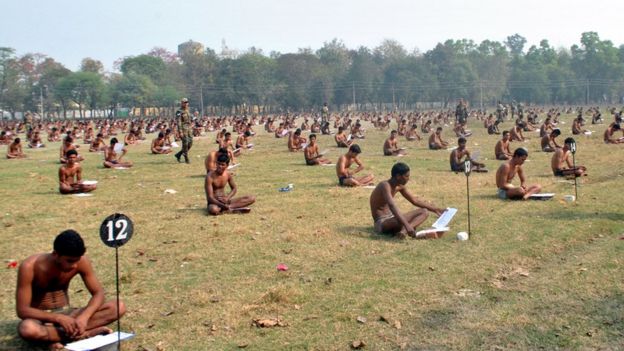 AFP
AFP
What I find the most shocking about the phenomenon in Ghana, though, is the regular involvement of teachers and parents in attempts to compromise the integrity of exams.
Schoolchildren have told stories of parents giving them money to buy leaked questions.
Teachers have been found to offer prepared answers to their students.
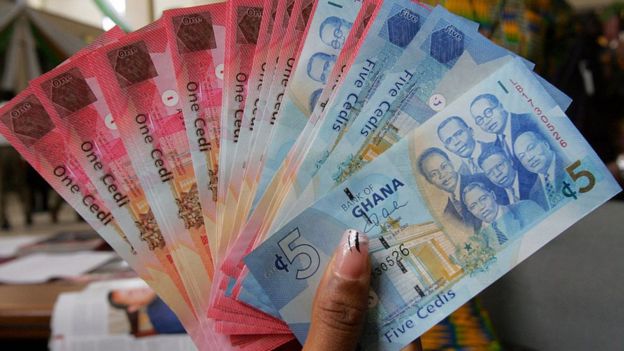 AFP
AFP
I have decided there is no point in getting myself scandalised by these outrages.
These days I pick my fights and if parents and teachers think it is acceptable to undermine the integrity of exams, I know I am up against it.
It helps, though, that I now have an explanation for the 30-something-year-old I met recently who cannot read or write and claims to have completed Junior High School (JHS).
Now, when I am confronted with mediocrity in public life, and when I am dismayed with the obvious illiteracy of people in high public positions who are supposed to have academic qualifications, I can safely explain the situation to myself.
They must have had "foreknowledge" of questions in their exams at the basic, secondary, degree and maybe even masters and PhD levels.
More from Elizabeth Ohene:
- How to insult a politician
- Ghana's footballing connection to Guantanamo Bay
- Ghana opens doors to other Africans
- Ghana's fondness for creative language
- Should Ghanaians be given a three-day-weekend to attend funerals?
